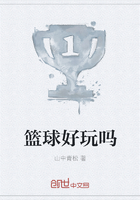--SCHOOLS FOR THE EDUCATION OF YOUTH CONSIDERED.--THE BOY AND THE MAN COMPARED.
One of the earliest judgments that is usually made by those whose attention is turned to the characters of men in the social state, is of the great inequality with which the gifts of the understanding are distributed among us.
Go into a miscellaneous society; sit down at table with ten or twelve men; repair to a club where as many are assembled in an evening to relax from the toils of the day--it is almost proverbial, that one or two of these persons will perhaps be brilliant, and the rest "weary, stale, flat and unprofitable."
Go into a numerous school--the case will be still more striking.
I have been present where two men of superior endowments endeavoured to enter into a calculation on the subject; and they agreed that there was not above one boy in a hundred, who would be found to possess a penetrating understanding, and to be able to strike into a path of intellect that was truly his own. How common is it to hear the master of such a school say, "Aye, I am proud of that lad; I have been a schoolmaster these thirty years, and have never had such another!"
The society above referred to, the dinner-party, or the club, was to a considerable degree select, brought together by a certain supposed congeniality between the individuals thus assembled.
Were they taken indiscriminately, as boys are when consigned to the care of a schoolmaster, the proportion of the brilliant would not be a whit greater than in the latter case.
A main criterion of the superiority of the schoolboy will be found in his mode of answering a casual question proposed by the master. The majority will be wholly at fault, will shew that they do not understand the question, and will return an answer altogether from the purpose. One in a hundred perhaps, perhaps in a still less proportion, will reply in a laudable manner, and convey his ideas in perspicuous and spirited language.
It does not certainly go altogether so ill, with men grown up to years of maturity. They do not for the most part answer a plain question in a manner to make you wonder at their fatuity.
A main cause of the disadvantageous appearance exhibited by the ordinary schoolboy, lies in what we denominate sheepishness. He is at a loss, and in the first place stares at you, instead of giving an answer. He does not make by many degrees so poor a figure among his equals, as when he is addressed by his seniors.
One of the reasons of the latter phenomenon consists in the torpedo effect of what we may call, under the circumstances, the difference of ranks. The schoolmaster is a despot to his scholar; for every man is a despot, who delivers his judgment from the single impulse of his own will. The boy answers his questioner, as Dolon answers Ulysses in the Iliad, at the point of the sword. It is to a certain degree the same thing, when the boy is questioned merely by his senior. He fears he knows not what,--a reprimand, a look of lofty contempt, a gesture of summary disdain. He does not think it worth his while under these circumstances, to "gird up the loins of his mind." He cannot return a free and intrepid answer but to the person whom he regards as his equal. There is nothing that has so disqualifying an effect upon him who is to answer, as the consideration that he who questions is universally acknowledged to be a being of a higher sphere, or, as between the boy and the man, that he is the superior in conventional and corporal strength.
Nor is it ****** terror that restrains the boy from answering his senior with the same ******* and spirit, as he would answer his equal. He does not think it worth his while to enter the lists.
He despairs of doing the thing in the way that shall gain approbation, and therefore will not try. He is like a boxer, who, though skilful, will not fight with one hand tied behind him. He would return you the answer, if it occurred without his giving himself trouble; but he will not rouse his soul, and task his strength to give it. He is careless; and prefers trusting to whatever construction you may put upon him, and whatever treatment you may think proper to bestow upon him. It is the most difficult thing in the world, for the schoolmaster to inspire into his pupil the desire to do his best.














